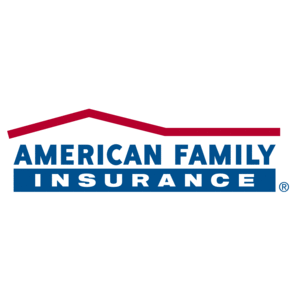What You Need to Know
- You will usually have a week to 30 days to get car insurance after buying your used car
- It is best to call your insurance company the same day you buy the car
- If you don’t have an insurance policy, you won’t be able to buy a used car from a dealership
Buying a car is a momentous occasion, especially when the purchase is on your terms and at a price you can afford. However, one of the first things you must do after your purchase is to insure a used car.
If you already have insurance, you’ll need to work quickly to switch your coverage from your previous vehicle to your new car. If you don’t have a policy already, you’ll need to buy car insurance before you can finalize your new vehicle purchase.
How long do you have to get insurance after buying a used car? The answer depends on a variety of factors, such as the grace period allowed by your insurance company and the state insurance laws.
Learn more about getting the best car insurance for your new vehicle and how to avoid driving without it.
How long do you have to get insurance after buying a used car?
The first thing to know when buying a used car is that a grace period usually covers your vehicle from the moment you leave the car dealership until a specific time period.
This grace period varies state by state and from insurer to insurer. However, some states don’t have grace periods for insuring a used car, requiring drivers to switch their insurance or buy new coverage immediately after purchase.
The penalties for driving without car insurance include the following:
- Large fines of up to $5,000
- Driver’s license suspension
- Vehicle registration suspension
- License and registration reinstatement fees
- SR-22 insurance fees
- Mandatory jail time and community service
- Vehicle impoundment
To avoid incurring these penalties, it’s best to:
- Research the specific grace period laws in your state
- Contact your insurance provider and learn what their policy is
- Play it safe and buy coverage for your vehicle
You usually have a week to 30 days to add your used car to your insurance policy. Again, to stay on the safe side, it’s best to call your insurance company the same day you buy the car.
What is the typical grace period to purchase car insurance for a used car?
Overall, driving without car insurance is illegal and can subject you to various penalties. The best way to avoid driving illegally is to call your insurance company. This way, you can be certain that a grace period will cover you until you switch your coverage.
Although how long it takes to buy a car is as short as one day, you usually have a week to 30 days to add your used car to your insurance policy. If you don’t have car insurance, you’ll need to buy a coverage plan before leaving the car dealership.
When shopping for used car insurance rates, it’s important to compare different quotes to find the cheapest option. You can rely on a comparison tool to browse tons of quotes without doing all the research on your own.
Information You Need to Buy Car Insurance for a Used Vehicle
To buy a used car insurance policy, you must first provide a few basic details, such as
- Personal contact information
- Vehicle information
- Past driving history
If you already have a car insurance policy, you can simply call your provider and add your recently purchased vehicle to your plan. This can also be done via your online account. The good news is that buying a new car insurance policy is a quick and easy process.
Here is all the information a car insurance provider will typically ask for when reviewing your application:
- Vehicle Identification Number (VIN)
- Model
- Make
- Year
- Color
Once you provide this necessary information, a company representative will reach back out to you and provide a quote for insuring your vehicle. You can choose to add your vehicle to this coverage or choose another provider.
How to Buy the Best Insurance for a Used Car
Buying used car insurance is very similar to buying insurance for a new vehicle. The process involves determining the level of coverage you need and comparing different quotes before coming to a decision.
Before you can complete your purchase, your car dealer will request proof of insurance. There are three ways to obtain proof of insurance that dealerships will accept: insurance cards, policy copies, and through a mobile app.
Top Factors That Influence Used Car Insurance Costs
Several factors can affect the price you pay for insurance on used cars. Some of these factors are based on conditions specific to your vehicle, such as its total price and likelihood of being stolen.
Other factors are more personal, such as your ZIP code, driving record, and coverage choices. The price of used cars may also play a role in insurance costs.
With the demand for used cars increasing yearly, colliding with recent supply chain issues, insurance costs may also rise.
Used Car Insurance Coverage Options
When you’re in the process of buying used car insurance, you’ll be able to choose the type of coverage you want. Some coverage is automatically required, like liability coverage. Other forms of coverage are optional.
These are the main forms of coverage to give you an idea of whether the protection you’re looking for is worth the cost.
| Car Insurance Policy | What does it cover? |
|---|---|
| Bodily Injury Liability | This coverage pays for the other driver’s injuries after a car accident. |
| Property Damage Liability | This coverage pays for property damage caused by your vehicle. |
| Collision and Comprehensive | Choosing this option will provide full coverage against physical damage to your vehicle. |
| Gap | This special type of coverage pays for the difference in the damaged car’s total value and the remaining loan balance. |
Let’s discuss these options in more detail.
Body Injury Liability
Bodily injury liability, also known as liability car insurance, is required in nearly every state in the U.S. This is because it covers the other driver if you were responsible for their injuries. This coverage specifically pays the other driver’s lost wages and medical bills.
Property Damage Liability
Property damage liability is designed to reimburse a person for their damaged property. This property could be a home, vehicle, or building owned by a business or government entity. You may be liable for property damage in an at-fault accident without this coverage.
Collision and Comprehensive Coverage
This coverage is optional unless your lender requires it or you have a loan for your used car.
If you want to determine whether you need collision or comprehensive car insurance coverage, you should consider the total value of your car and its cost. For example, trucks usually hold their value over time.
It may be worth the increased cost to pay for full coverage if your truck maintains its value in the long term.
Gap Insurance
This is another optional form of insurance coverage. Gap insurance is for vehicles that are tied to a loan or lease, paying the difference between the totaled car’s value and loan balance. Purchasing this coverage may be a great idea if your car is worth less than your loan balance.
How to Determine How Much Used Car Insurance You Need
The first step to buying used car insurance is knowing how much coverage you need for your vehicle. The minimum amount of coverage you need varies from state to state. Nonetheless, you should at least have the following coverage amounts:
- $100,000 bodily injury coverage per person
- $300,000 bodily injury coverage per accident
- $100,000 property damages
Depending on the make and model of your used car, you may choose these minimum limits. This is especially true if you want to save money on a used car with little value.
However, it’s recommended that you purchase full coverage for vehicles a 2011 or newer model year. This way, you can be reimbursed for damages to a valuable vehicle.
Before purchasing used car insurance, it’s important to distinguish between used and classic cars. Classic cars are insured differently than used cars. While a used car insurance policy can extend to a classic car, it’s best to have a separate policy. This is best to obtain full coverage for your classic car and receive peace of mind.
What are the best ways to save money on used car insurance?
Following these tips to get affordable insurance after buying a used car and help you lower the cost of car insurance per month without compromising on ideal coverage for your vehicle.
- Decide upfront. Before shopping, decide whether you want full coverage for your vehicle or simply liability coverage.
- Shop for different quotes. Always compare different quotes from multiple carriers to find the cheapest option.
- Try bundling. Bundling home and auto insurance usually leads to long-term savings.
- Inquire about discounts. Make sure to ask about savings for being a good driver and driving a safe car.
- Use online tools. Make use of calculators and price comparison tools to shop for the best used car insurance rates.
- Consider increasing your deductible. Paying a higher deductible always means paying lower premiums. However, if you file a claim, prepare to pay more for your coverage.
- Try pay-per-mile insurance. If you don’t plan on driving your car much, you should try paying for pay-per-mile insurance to save money.
Not every discount option will be available with every insurer, but there are multiple ways to save money on car insurance rates. For example, if your company doesn’t offer pay-per-mile or usage-based discounts, shop around with multiple providers to guarantee you’re getting the best used car insurance rates.
The Bottom Line on Buying Used Car Insurance
You typically have at least a week after purchase to buy insurance on a used car. Some states and insurance companies give drivers up to 30 days to buy coverage, but the longer you wait, the riskier it becomes.
Driving without auto insurance will raise your monthly rates and could cost a repeat offender their driver's license. The safest route is buying car insurance for your used car as soon as possible.
Not sure if you can buy insurance on the weekend? The good news is you can still shop for auto insurance quotes and buy a policy online any day of the week. So start comparing quotes today with our free comparison tool below.
Frequently Asked Questions About Used Car Insurance
Do you have more questions about used car insurance? Below are some important questions and answers to give you more clarity on the subject.
How long do you have to add a new car to your insurance policy?
You will typically have a week to 30 days to add your used car to your insurance policy. This time will vary from state to state and insurer from insurer. Therefore, make sure you contact your insurance company for more accurate information.
How do you insure a car right after you buy it?
To insure your car right after purchase, make sure to contact your insurance provider and switch your coverage. If you don’t already have insurance, you can typically purchase a coverage plan immediately, unless it’s the weekend.
Can I drive a car back that I just bought without insurance?
It’s illegal to drive any car without insurance. Unless there is a grace period in your state, you are breaking the law by driving a car back to your home without insurance.
Can you add a car to an existing policy?
You can add any car to an existing policy, but the conditions depend on your insurance provider.
Can I insure a car I haven't bought yet?
You can insure a car you haven’t officially purchased. This is required before you can take the car home.
Do you need car insurance when buying from a private seller?
There is no getting around the fact that you need insurance on a used car. If you don’t have insurance coverage before buying a used car, you typically won’t be able to move forward with the purchase at a car dealership. That is unless you buy a used car from a private seller.
However, if you buy from a private seller and don’t have insurance, you are driving illegally. Therefore, the avenue of purchase doesn’t matter. Whether you buy from a private seller or a car dealership, you must purchase an insurance policy.
Can you insure two cars at the same time?
If you have multiple cars at the same address, you can add them all to the same policy.
Why do states require used car insurance?
Car insurance is required for both new and used vehicles to maximize financial responsibility in accidents. This way, car accident victims are reimbursed for their injuries and property damage.
Virginia and New Hampshire are the only states that do not require auto insurance. In these states, you will simply be held financially responsible for any car accident you cause. For this reason, many states require car insurance to protect drivers from direct financial responsibility for car accidents.







